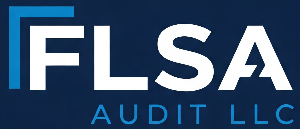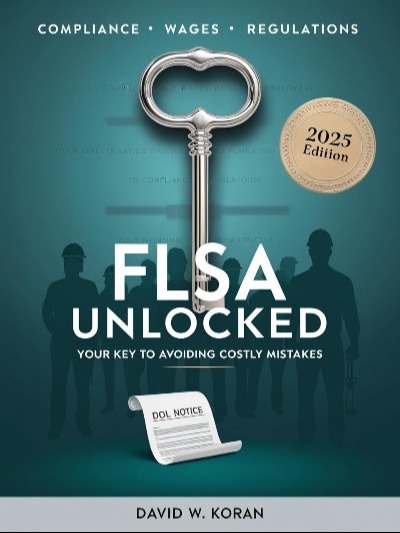Are You Covered? The Truth About Insurance and FLSA Violations
As a business owner or HR leader, you might assume your insurance will shield you from the fallout of a wage and hour violation. After all, you’ve invested in policies to protect your company—surely they’ll cover a Fair Labor Standards Act (FLSA) misstep, right? The reality is far less reassuring. Most standard insurance policies, including Employment Practices Liability Insurance (EPLI), leave significant gaps when it comes to FLSA violations—gaps that could cost your business tens or even hundreds of thousands of dollars.
A single overlooked FLSA issue can spiral into a financial nightmare. That’s why proactive audits are essential. Let’s unpack the insurance landscape and show you why an FLSA audit isn’t just smart—it’s a necessity.
The High Stakes of Wage and Hour Violations
FLSA violations—like misclassifying employees, failing to pay overtime, or sloppy recordkeeping—are more common than you’d think. In 2023 alone, the Department of Labor (DOL) recovered $212 million in back wages for workers, a 10% jump from the prior year. The average penalty per violation? Over $1,000, not counting legal fees or doubled damages for willful errors.
These aren’t just big-corporation problems. Small and mid-sized businesses—40% of DOL investigations target firms with under 50 employees—are in the crosshairs too. One misclassified worker can trigger years of back wages, fines, and lawsuits. And when that happens, your insurance might not save you.
Does EPLI Cover FLSA Violations?
Employment Practices Liability Insurance (EPLI) is designed to protect against employment claims—like discrimination or harassment—so it seems like a natural fit for wage and hour issues. But here’s the catch: most EPLI policies don’t fully cover FLSA violations.
- Defense Costs Only: At best, standard EPLI typically covers legal fees to defend against a lawsuit or DOL investigation. If an employee sues for $50,000 in unpaid overtime, your policy might pay the $20,000 in attorney fees—but you’re still on the hook for the $50,000 settlement.
- Exclusions Galore: Wage and hour claims are often excluded entirely, or coverage is capped at low sublimits (e.g., $100,000). Compare that to a collective-action FLSA lawsuit, where damages can hit $1 million or more, and you see the problem.
- No Help for Back Wages or Fines: Back wages, liquidated damages (double the owed amount), and DOL penalties (up to $2,014 per violation) are rarely covered. If your violation is deemed “willful,” insurers might deny coverage altogether, citing intentional acts.
Some companies opt for wage and hour endorsements or standalone policies, but these come with high premiums, hefty deductibles, and strict limits. Even then, they might not cover government fines or massive class-action settlements. The bottom line? Insurance isn’t the safety net you think it is.
Civil Lawsuits: A Costly Blind Spot
FLSA violations often escalate into civil lawsuits—individual claims or collective actions involving dozens of employees. These cases are expensive:
- Defense Costs: Legal fees can range from $50,000 for a single claim to $500,000+ for a collective action, even if you win.
- Settlements: Median FLSA collective-action settlements exceed $1 million, while individual cases often settle for $10,000-$50,000.
- Uncovered Losses: EPLI might cover the legal bills (up to a point), but the back wages and damages? That’s usually on you.
For example, a manufacturing business faced a $320,000 lawsuit over misclassified "managers". Their EPLI covered $31,000 in defense costs, but the $289,000 in back wages and damages came straight out of their pocket. An audit could’ve caught that issue for a fraction of the cost.
Why FLSA Audits Are Your Best Defense
Here’s the hard truth: no insurance policy can fully protect you from FLSA violations. The DOL doesn’t care about your coverage—they want compliance. And when employees sue, the courts focus on what you owe, not what your insurer will pay.
That’s where FLSA Audit LLC comes in. Our FLSA audits dig into your payroll, employee classifications, and records to spot risks before they become disasters. Consider:
- Cost Savings: A $2,500 audit can save you $70,000 in uncovered losses—or more if it prevents a lawsuit.
- Peace of Mind: We ensure you’re DOL-ready, so a knock on your door doesn’t become a six-figure headache.
- Universal Need: Every company with employees faces FLSA rules. Whether you’ve got five staff or 500, compliance isn’t optional.
Don’t Wait for the Bill to Arrive
Insurance might soften the blow of an FLSA violation but won’t eliminate it. Why risk a settlement your policy won’t touch—or a DOL fine that could’ve been avoided? In 2023, wage and hour lawsuits remained a top employment law threat, and that trend isn’t slowing down.


